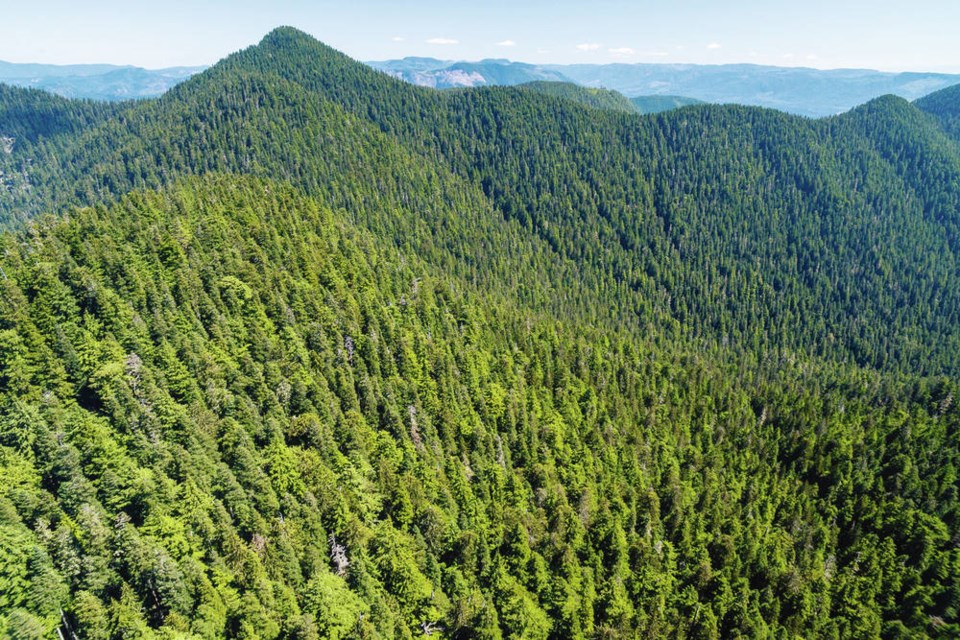The province’s intentions paper on modernizing the forest industry is a good first step but falls well short of satisfying the needs of First Nations, experts told the B.C. First Nations Forestry Conference.
A panel presentation on Day 2 of the virtual conference suggested the paper, released this month, does not go far enough to address the concerns of First Nations.
The policy paper promised the future of the province’s forest industry would include improved access to fibre for a broader group of companies, communities and First Nations – their share would double to 20 per cent from its current 10 per cent – revamping the current forest tenure system, increased emphasis on the value-added sector, further protection of old-growth forest and an increased role in all facets of forestry for First Nations.
Charlene Higgins, chief executive of the B.C. First Nations Forestry Council, said the province has not lived up to its commitment to First Nations.
“They have not endorsed or committed to implementing the B.C. First Nations Forest Strategy,” she said, noting the intentions paper does not even mention the strategy, which the council unveiled in 2019.
The First Nations’ strategy document, developed over several years of in-depth consultation with Indigenous groups around B.C., laid out six forest-related goals, including sharing governance and decision-making, meaningful revenue sharing, tenure reform that recognizes the United Nations Declaration on the Rights of Indigenous Peoples and maximising First Nations’ involvement in the sector.
“That strategy should be used to guide the modernization of forest policy,” said Higgins, who added she took heart that Minister of Forests Katrine Conroy said it would help inform future policy.
Conroy, who appeared by video link from the Legislature, told the conference aligning with the UN declaration is one reason why they are modernizing forest policy.
“We have heard Indigenous people want a greater role in the sector and want greater access to forest tenure in their traditional territory to create economic opportunities,” Conroy said.
But Higgins said First Nations must be full partners in forestry. The intentions paper might lay out a vision that is informed by consultation, but it does not change some policies that First Nations have been concerned about for years, Higgins said.
She said revenue sharing, for example, has been laughable, noting the province returns less than six per cent of stumpage fees – fees paid to cut on Crown land – to First Nations.
“Nothing has changed to the revenue-sharing models,” she said, characterizing them as “take-it-or-leave-it” agreements.
“Reconciliation requires a new fiscal relationship with First Nations,” Higgins said, adding it means meaningful sharing of lands and resources on Indigenous territory.
Robert Phillips, one of the political executives of the First Nations Summit, said getting involved in forestry has been a struggle for First Nations and there has plenty of concern brewing over B.C.’s plan to modernize the industry.
He said the province must better align with the First Nations Forest Strategy and deal with Indigenous people as equals.
“We are decision makers and we are rights and title holders and have jurisdiction and authority,” he said. “[The intentions paper] missed the mark from a First Nations’ perspective – we are not talking about improved consultation and accommodation, it’s much more than that.
“We need B.C. to step up to legislate legal requirements for First Nations to be part of decision-making in forestry from improved tenure reform, revenue sharing, land-use planning, and value-added investments.”
Sandra Atkinson, director of operations for B.C. First Nations Forest Council, said the conference is all about change and establishing First Nations as full partners in the industry.
“This conference is the opportunity for the province to listen to what that really means,” she said.



